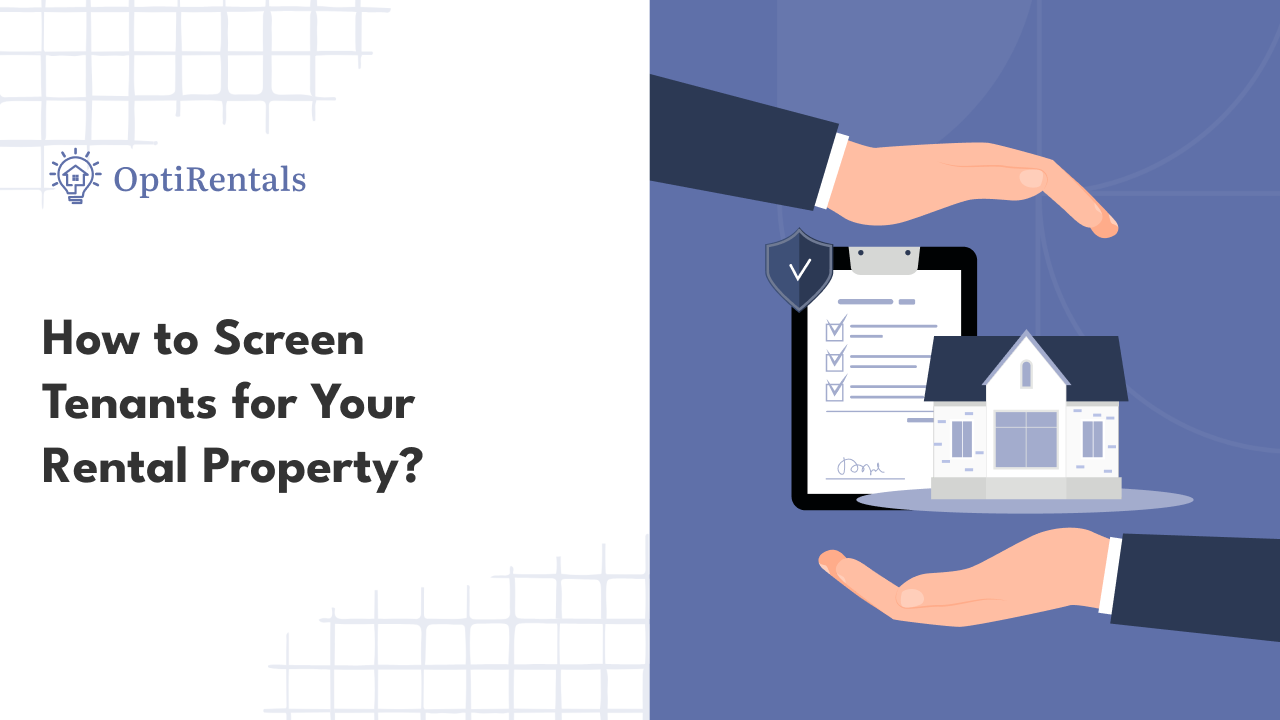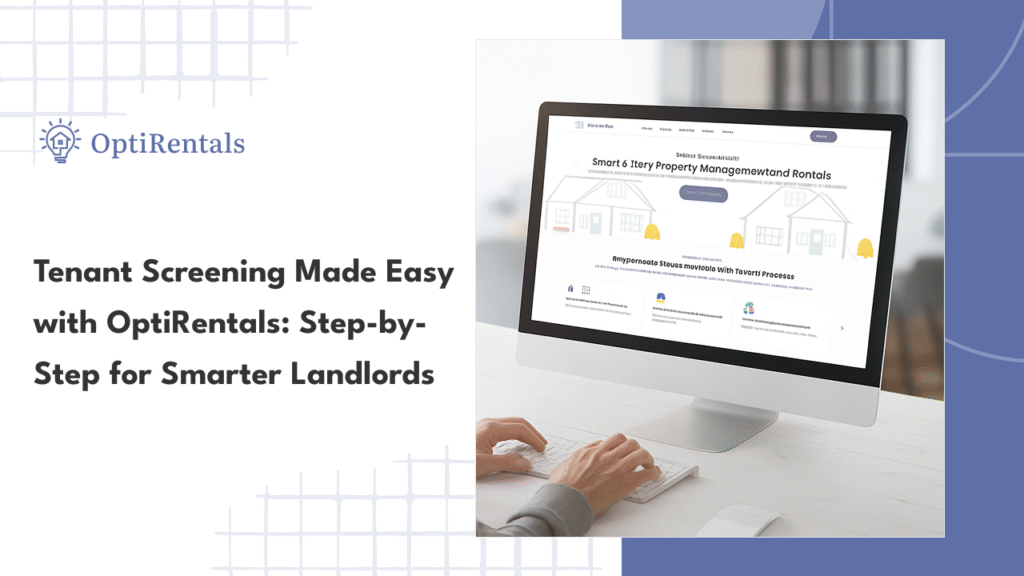Finding a reputable tenant is one of the most important elements of rental property management. Securing your money is made easier by good tenants. Poor tenants may result in property damage, late payments, or legal issues. Tenant screening is essential for this reason. It helps landlords in choosing renters who are more likely to upkeep the property, make payments for rent on time, and comply with the conditions of the lease.
In this article, we will go over the whole tenant screening process in depth. You will learn which steps to take, what to look for, and what sources to employ.
What is tenant screening?
Tenant screening is the process to evaluate a prospective renter prior to giving them a rental agreement. Ensuring certain they are likely to maintain the property, pay rent on time, and follow the conditions of the lease is the goal.
Through screening, landlords can choose reliable tenants and stay clear of possible problems. It is amongst the most important elements of managing a property.
What is a tenant screening report?
A document containing information about a potential tenant’s background is called a tenant screening report. It usually includes:
- History of credit
- Confirmation of employment
- Illegal history inquiry
- Previous rental experience
- Record of evictions
The report is utilized by property managers or landlords when deciding whether to grant or reject an application.
How to screen tenants for a rental property?
After receiving a rental application, the tenant screening process typically starts. The general approach is as follows:
- Collect the application in all of it.
- Verify your employment and income.
- Check your credit history.
- Connect with previous landlords.
- Check your criminal history.
- Select a decision based on the information.
The following explains each of these steps.
Read More: Tenant Screening Tips Every Landlord Should Know | OptiRentals
Steps for tenant screening
1. Use a rental application
Request an accurate rental application from a prospective tenant. This form ought to contain:
- Full name
- Number from Social Security (or a similar ID)
- Date of birth
- Past and present addresses
- History of employment
- Income per month
- Contact information for former landlords
- Permission to perform a credit and background investigation
Be sure to gather enough data to initiate an appropriate screening procedure.
2. Verify income and employment
Checking that the applicant earns enough money for their rent is essential. Application:
- Recent paychecks
- Letter of employment
- Statements from banks
- Tax returns (for independent contractors)
The rent should generally be at least 2.5 to 3 times the tenant’s income.
3. Run a credit check
Tenant credit checks reveal the applicant’s financial management practices. It consists of:
- Score for credit
- History of payments
- Unpaid debts
- Past bankruptcies
Find proof of fiscal accountability. Although it could cause concerns, an inadequate credit rating is not a guarantee of an insecure tenant.
4. Check rental history
Speak with the tenant’s previous landlords. Make questions such as:
- Was the rent paid on time by the tenant?
- Are there any complaints or problems?
- Did they agree to the terms of the lease?
- Is this tenant someone you would rent to again?
You can learn a lot about a tenant’s behavior from referrals to previous landlords.
5. Run a background check
Use a background investigation to search for:
- Criminal behavior
- History of evictions
This maintains your neighborhood safe and assists in protecting your home.
6. Use fair and consistent criteria
Make sure when handle each candidate according to the same standards. Stay away from harassment based on gender, ethnicity, religion, or family status. Observe municipal tenant laws and comply with the Fair Housing Act.
Using tenant screening services
Use a tenant screening agency if you cannot find enough time to complete this procedure yourself. Automated credit, eviction, and background checks are provided by these types of companies. Additionally, they collect all of the data into an overview that is easy to read.
These are a few of the best tenant screening services:
- RentPrep
- Using TransUnion’s SmartMove
- Get Avail
- The RentSpree website
There’s a fee for such services, which the candidate might be charged.
Why tenant credit checks matter
How financially responsible a tenant is can be determined by their credit report. It gives information about the probability of paying on-time rent payments. A good tenant usually has less debt and a clean payment record.
It may indicate a warning sign when the credit report shows a lot of late payments, large bankruptcy, or recent collections.
Common mistakes to avoid
- Not running background or credit checks: This increases the possibility of arrest or unpaid rent.
- Skipping previous landlord references: You could ignore important patterns of conduct.
- Ignoring Fair Housing laws: Rejecting someone for illegal reasons could get you in legal hot water.
- Accepting incomplete applications: Before proceeding, always collect complete and accurate information.
Follow Us on: Facebook | Instagram | Pinterest | LinkedIn | Twitter
How OptiRentals helps landlords
For property managers and owners, OptiRentals automates the tenant screening procedure. Making informed choices is made simpler by OptiRentals’ comprehensive features, such as computerized credit checks, criminal background checks, and rental histories.
The landlord can utilize OptiRentals in place of physically organizing paperwork to:
- Collect online applications
- View and request screening reports
- Automate the approval procedure.
- Keep a central location for all renter records.
Time is saved, and the possibility of human error is decreased.
Conclusion
One of the most important elements of managing a rental property is screening prospective tenants. Landlords can reduce risk, avoid expensive removal, and ensure an excellent leasing experience by implementing a proper screening procedure. You can make educated choices that safeguard your property and income through inquiry into an applicant’s background, rental history, credit, and income.
It’s important to be consistent, comply with the law, and use reliable sources, whether you choose to carry out the verification process yourself or use a professional tenant screening agency. By handling applications, credit checks, and background checks in one location, solutions such as OptiRentals help expedite, arrange, and minimize the pressure from the process.
A good tenant is a person who respects your property and performs their responsibilities, instead of just someone who pays rent. You stand a better chance of identifying tenants who do so if you use a suitable screening procedure.
FAQs
1. What is the cost of tenant screening?
Tenant screening can score you anywhere from $25 to $50 per applicant, depending on how detailed you want it to be.
2. Who pays for tenant screening?
Generally, the tenant pays this fee as part of the application procedure. Make sure this is spelled out before they apply.
3. Can I reject a tenant based on poor credit?
You can, but ensure that you do follow all Fair Housing laws and provide an explanation (called a “notice of adverse action”) if you are denying because of credit.
4. How long does the tenant screening process take?
Most tenant screening reports are available within 24-to-48 hours, especially using online screening services.
5. Do I need written consent to run a background check?
No. You must get written permission from the applicant before checking their credit or background.


